CASA BLOGS

Empowering, Preparing for Future
Cash transfers give choices and dignity to people affected by disasters and make humanitarian aid more accountable by providing a sense of ownership and control at a time of crisis. The program comes as an opportunity to bring women-centric empowerment for the community at the forefront. Cash program stimulates local economy and employment by shifting the power from larger wholesalers to local retailers who then kick-start essential services.
How unconditional cash transfers support women in emergencies?
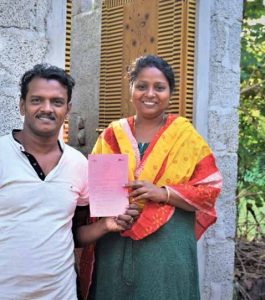 Quoting a study, a major NGO has pointed that “evidence shows providing cash to women can reduce physical abuse, rates of child marriage and improve women’s health and economic status.”
Quoting a study, a major NGO has pointed that “evidence shows providing cash to women can reduce physical abuse, rates of child marriage and improve women’s health and economic status.”
Take for example Ms Vidya Gireshkumar from Ramankerry village in Alappuzha district. With Rs 8,000 grant, she used a large chunk of it for toilet construction and saved the remaining amount in her bank account for house repair.
The toilet was built keeping in mind her ten-year-old school-going girl and niece who didn’t have access to private bathroom after floods. The children would mostly go together in the contaminated paddy fields to relieve themselves early in the morning. Although her husband – an auto driver – needed
most money to repair his three-wheeler, they jointly agreed on
investing a significant portion into dignity first.
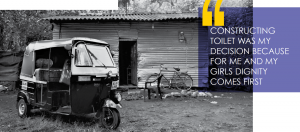
Such overwhelming decisions to choose what is best and prior for a family, is one big example of how unconditional cash transfer brings gender neutrality in a family and can be extended up to a community.
ORGANISED, PREPARED, FOR THE FUTURE
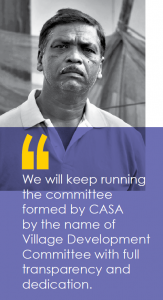 “This is a major experience of my life. We will keep running the committee and work for the development of our village.” This is how Jose Chacko, General Secretary of Committee formed by CASA in Komanchira Village during the unconditional cash transfer program, lists the possibilities.
“This is a major experience of my life. We will keep running the committee and work for the development of our village.” This is how Jose Chacko, General Secretary of Committee formed by CASA in Komanchira Village during the unconditional cash transfer program, lists the possibilities.
A few months after the flood situation, the communities had nothing to hold on to. Some returned to their homes only to find the pieces of structures. Four months of the intervention, the community members say they have “the reason and strength to believe that they will get back on their feet a little sooner.”
A newly installed notice board at the village entrance is proof of the communities’ mettle in overcoming the trauma and loss. “We will conduct committee elections and organise our activities the same way CASA taught and organised for us. We learned a lot, I learned a lot,” said Jose, a daily wage labourer.
Never before, Jose said, that he or any of his community member came across a program that helped them in many different ways. “Empowerment does not just come by physical distribution of material; it comes from making the choices that will benefit us in the longer run.”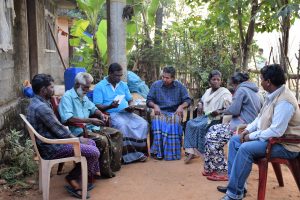
Better prepared for all eventualities, Jose and his committee President friend Ravindran are planning to carry out a campaign to register names of every resident for their Village Development Committee. Furthermore, he promises that “next time CASA team visits his village, they might be able to meet a woman President or General Secretary.”
Ramankery village will always be remembered by CASA for its women participation rate. Eight out of nine committee members nominated were women whose strong sense of dispute solving approach and speedy processes were very much appreciated. Village Committee President Sandhya believes that having “learnt a lot from the program and its approach, I feel I should take on bigger roles now.”
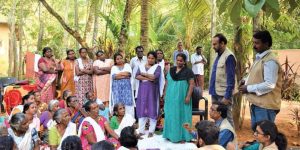
Ramankery village will always be remembered by CASA for its women participation rate. Eight out of nine committee members nominated were women whose strong sense of dispute solving approach and speedy processes were very much appreciated. Village Committee President Sandhya believes that having “learnt a lot from the program and its approach, I feel I should take on bigger roles now.”
 Previous Blog Post Unconditional Cash Support: The Complete Freedom
Previous Blog Post Unconditional Cash Support: The Complete Freedom Healing Wounds: 14 years after Tsunami
Healing Wounds: 14 years after TsunamiFeatured Post
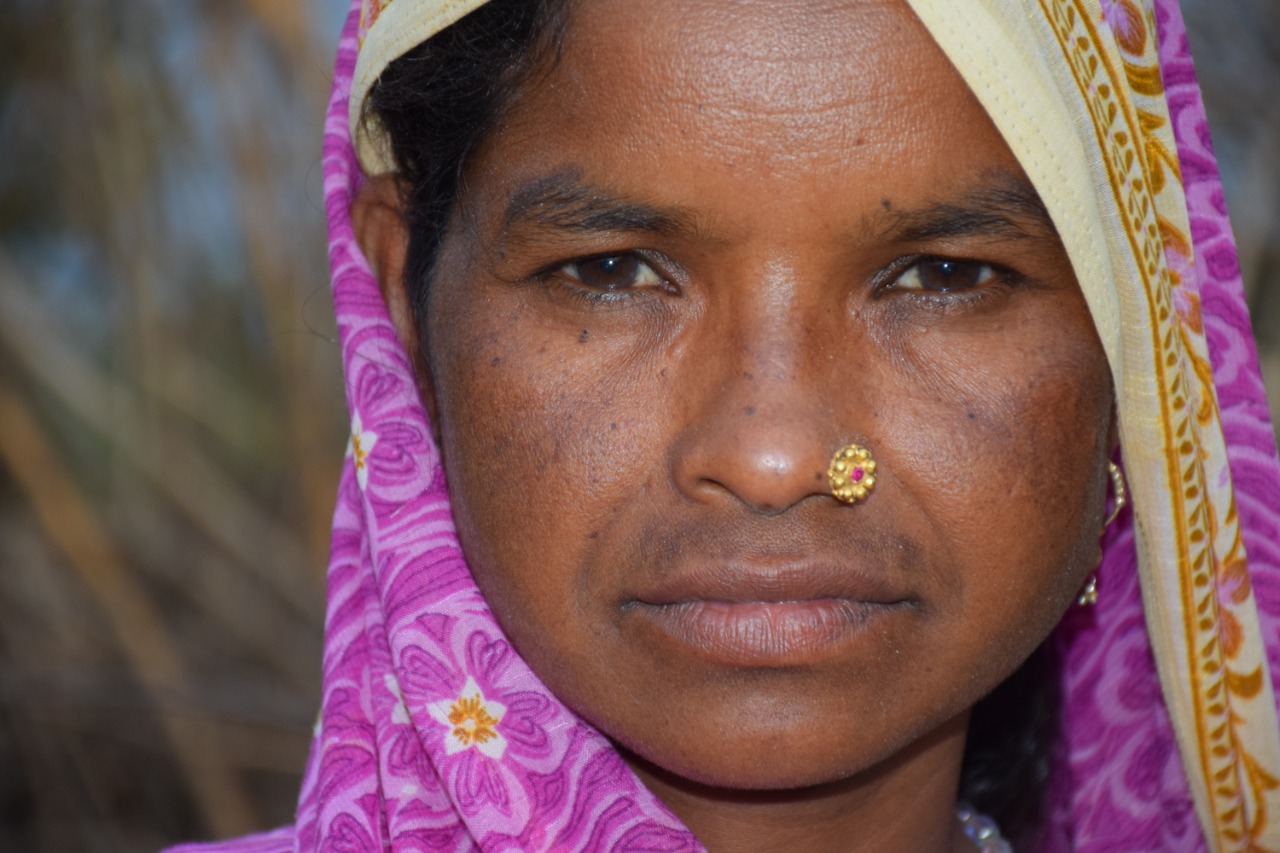
Mental Health Awareness in India: Addressing Key Challenges
8 Nov 2024
Mental health awareness is crucial in India, where millions silently struggle with mental health disorders, including depression, anxiety, and bipolar disorder. Despite growing recognition, India faces unique challenges in effectively addressing mental health issues. The stigma associated with mental illness remains a primary barrier. In Indian society, mental health issues are often misunderstood, leading to […]

Ensuring Girls’ Safety in India: A Path Toward Empowerment
20 Aug 2024
Girls’ safety in India remains a critical issue that has garnered increasing attention over the years. Despite various reforms and efforts from both government and civil society, challenges persist. From street harassment to domestic violence, gender-based discrimination continues to limit the freedom and safety of girls. While significant progress has been made in addressing these […]
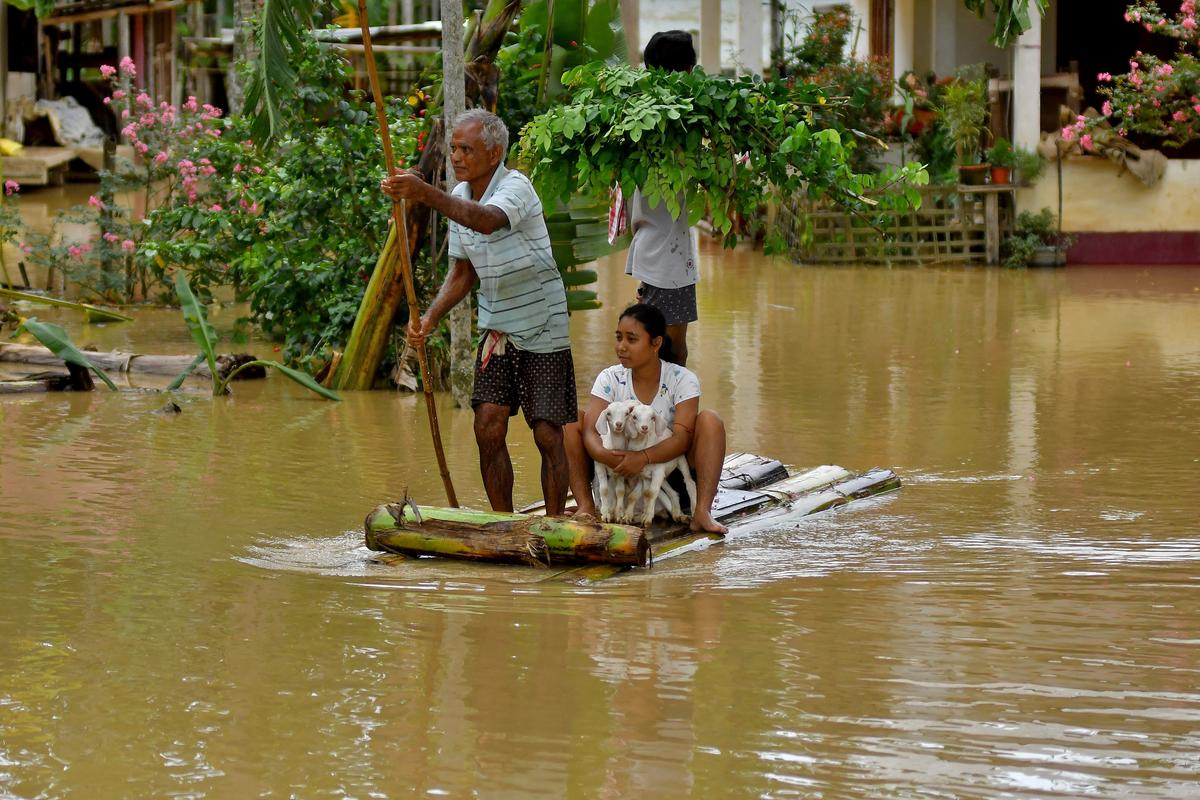
The Connection Between Monsoons and Floods in India: An In-Depth Analysis
9 Jul 2024
India, a land of diverse climates and geographical features, relies heavily on the monsoon season for its agricultural and water resources. However, with the benefits of the monsoon rains come significant challenges, particularly in the form of floods. This blog explores the intricate relationship between the monsoon season and flooding in India, providing detailed insights […]


